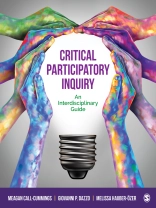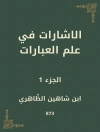Critical Participatory Inquiry: An Interdisciplinary Guide brings to life key principles of this collaborative research method for students, practitioners, and research collectives. The authors encourage readers to uncover new possibilities in research guided by the emancipatory roots of CPI to deconstruct inequitable conditions and practices. Weaving together theoretical perspectives, a variety of tools for data collection and analysis, and numerous practical examples, the authors offer a complete picture of the research process from start to finish. This thoughtful and thorough book prepares readers to co-create knowledge effectively and ethically. By addressing the underlying principles common to a variety of action and participatory research methods, readers learn to design and carry out research with, not on, communities. With examples from public health, social work, psychology, education, criminal justice, conflict resolution, and more, the text is suited to a wide variety of graduate-level courses and better reflects the interdisciplinary nature of participatory research with collectives of all sizes and compositions.
Table des matières
Chapter 1: Whose Knowledge Counts?
Chapter 2: What is Critical Participatory Inquiry?
Chapter 3: Ethics and Validity in Participatory Inquiry
Chapter 4: Building (on) Relationships
Chapter 5: Getting Started
Chapter 6: Gathering Data and Making Meaning: Making Traditional Approaches More Participatory
Chapter 7: Gathering Data and Making Meaning: Arts-based Approaches
Chapter 8: Gathering Data and Making Meaning: Digital and Multimedia Approaches
Chapter 9: Taking Action
Chapter 10: Staying Committed and in Solidarity
A propos de l’auteur
Melissa Hauber-Özer is an Assistant Professor of Qualitative Inquiry in the Department of Learning, Teaching, and Curriculum at the University of Missouri-Columbia. She teaches graduate courses in qualitative research methods, critical participatory inquiry, and educational philosophy. Her research employs critical participatory, ethnographic, and narrative methodologies to examine issues of educational access and equity for linguistically and culturally diverse learners. She has published in several edited volumes and journals, including the International Journal of Qualitative Studies in Education, the Journal of Adolescent & Adult Literacy, Action Research, and the International Journal of Research and Method in Education. Melissa’s current work addresses community-identified needs in partnership with a local non-profit organization supporting refugees and immigrants in mid-Missouri.












